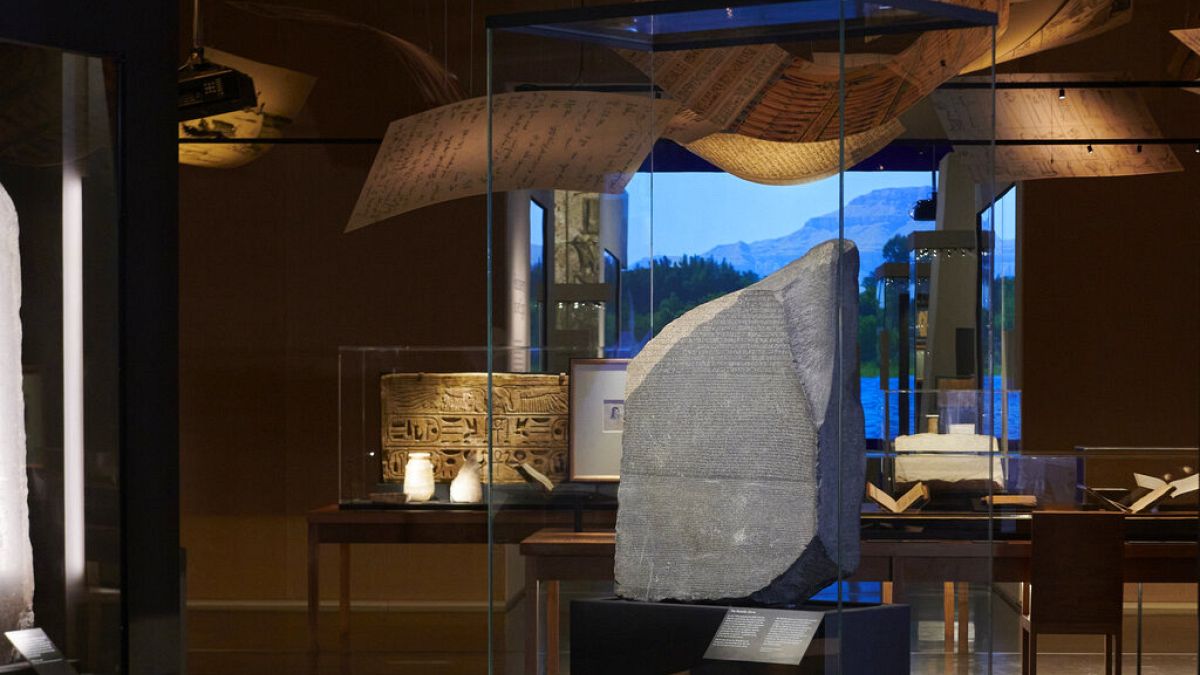The debate over who owns ancient artifacts has been an increasing challenge to museums across Europe and America, and the spotlight has fallen on the most visited piece in the British Museum, the Rosetta stone.
Tens of thousands of Egyptians are demanding that the British Museum returns the Rosetta stone, an ancient relic containing three translations of a decree between the then-ruling Ptolemies and a sect of Egyptian priests.
The bilingual carvings on the stone dating back to the 2nd century B.C. proved to be the breakthrough in the decipherment of ancient Egyptian hieroglyphics after being unearthed by colonialists in Egypt in 1799.
Taken by forces within the British Empire in 1801, the black granite slab has become the focus of a debate over who owns ancient artefacts housed in Western museums.
According to an Egyptologist and Dean of the Arab Academy for Science, Technology & Maritime Transport in Cairo, Monica Hanna, "the British Museum’s holding of the stone is a symbol of Western cultural violence against Egypt.”
Hanna is responsible for collecting 4,200 signatures out of more than 100,000 in two near-identical petitions, calling for the relic to be returned to Egypt.
However, the British Museum, which is currently celebrating the 200th anniversary of the stone's decipherment, insists it has a claim to the slab.
The Battle for the Stone
The acquisition of the Rosetta Stone was tied up in the imperial battles between Britain and France.
After Napoleon Bonaparte’s military occupation of Egypt, French scientists uncovered the stone in the northern town of Rashid, known by the French as Rosetta.
When British forces defeated the French in Egypt, the stone and over a dozen other antiquities were handed over to the British under the terms of an 1801 surrender deal between the generals of the two sides.
Through knowledge of the latter, academics were able to decipher the hieroglyphic symbols, with French Egyptologist Jean-Francois Champollion eventually cracking the language in 1822.
It has remained in the British Museum ever since.
But Hanna says the stone was taken illegally, "I think all nations have the right to ask back for their heritage.
"In the 19th century, slavery was legal, child labour was legal and women had no rights. Today, we are in the 21st century and we have to correct the mistakes of the past and correct the mistakes of history because we can’t change it" she adds.
It has grown increasingly common for museums and collectors to return artefacts to their country of origin, with new instances reported nearly monthly.
Often, it’s the result of a court ruling, while some cases are voluntary, symbolising an act of atonement for historical wrongs.
Nicholas Donnell, a Boston-based attorney specialising in cases concerning art and artifacts, said no common international legal framework exists for such disputes.
Unless there is clear evidence an artifact was acquired illegally, repatriation is largely at the discretion of the museum.
‘‘Given the treaty and the time frame, the Rosetta stone is a hard legal battle to win,’’ said Donnell.
The stone is one of more than 100,000 Egyptian and Sudanese relics housed in the British Museum.
Watch Euronews' report in the player above.
